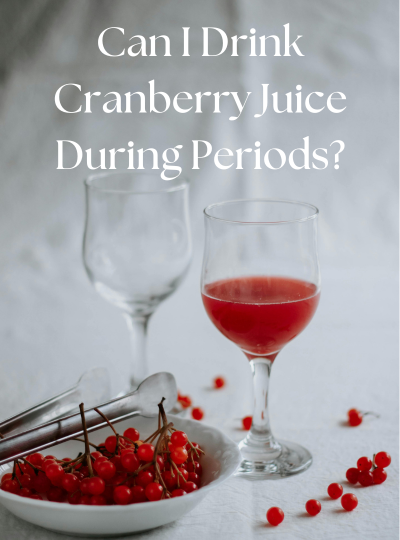Introduction to Irregular Periods
Periods are never an exciting time, but many women would rather go through their periods than be late or miss a period. After all, periods are an indication of the regular functioning of the female reproductive system.
Irregular periods are a cause for concern in case they’re a symptom of an underlying condition. They can affect your well-being and pose a challenge to those trying to get pregnant.
Slight variations in your period’s duration is normal and are nothing to worry about. A normal menstrual cycle can range from 21 to 35 days, in which the menstruation stage can last from 4 to 7 days. Menstrual irregularities with your period’s flow are also common and it’s ok to have a slightly lighter or heavier flow compared to your previous periods.
What are irregular periods?
For periods to be considered irregular, you can check for inconsistencies throughout multiple cycles.
These are some examples of irregular periods:
- Missing three or more periods in a row
- Periods occurring less than 21 days or more than 35 days apart
- Periods lasting longer than 7 days
- Unusually heavy or light flow
- Gap between cycles varies by more than 9 days
- Bleeding/spotting in between periods
How common are irregular periods?
Irregular periods are common, affecting 14-25% of menstruating women. They can be classified into ovulatory and anovulatory based on whether the woman ovulates or not respectively.
For teenagers going through puberty, postpartum women and perimenopausal women, it is normal to experience irregular periods due to the hormonal changes occurring in the body which don’t facilitate regular ovulation.
Causes of Irregular Periods
What causes irregular periods in women?
Since menstruation is regulated by hormones, irregular periods are highly associated with conditions which affect the natural secretion, reception or ratio of hormones in the body.
Some common factors associated with irregular periods are:
- Dietary Habits - Habits associated with eating disorders like binge eating, severe calorie restriction, cutting out entire food groups from a diet and going to the washroom immediately after meals can lead to irregular periods.
- Physical activity - Significant weight gain/loss in a short period of time, strenuous exercise routines and having a low body fat percentage (common in endurance athletes) can affect your hormone composition and cause irregular periods.
- Birth control pills - Taking birth control pills contains hormones, particularly progestin, which prevents pregnancy by stopping the ovaries from releasing eggs. Starting and stopping a course of birth control pills can lead to irregular periods. When stopping a course of birth control pills, the body can take some time to adjust to going through a normal hormonal cycle again. It can take up to 3 months after stopping birth control pills for the cycle to normalise.
Also read - Things you must avoid during periods
Can stress cause irregular periods?
Yes, stress can affect your menstrual cycle in different ways and its effects differ from person to person. Some of these effects can cause period irregularities. For example, excess levels of cortisol can cause delays in ovulation and prolong the luteal phase of the cycle.
Medical conditions that can cause irregular periods
- Polycystic Ovary Syndrome (PCOS) - The development of small sac-like cysts in the ovaries is common in PCOS. Those who suffer from PCOS have higher androgens including testosterone which can prevent or delay ovulation, causing irregularities in periods or even amenorrhea; a condition in which menstruation stops completely.
- Thyroid disorders - The hormones produced by the thyroid affect basic functions like metabolism and the beating of the heart, as well as the timing of ovulation and menstruation. Disorders like hypothyroidism and hyperthyroidism can affect the flow and frequency of menstruation, and are treated by balancing the thyroid hormones to a healthy limit.
- Endometriosis - Endometrial tissue is the tissue which lines the uterus from the inside. In this condition, there is an abnormal growth of the tissue outside the uterus, sometimes attaching itself to ovaries or fallopian tubes, causing pain. This can cause severe pain and abnormal bleeding.
- Uterine / Ovarian cancer - Certain cancers of the female genitalia can impact menstruation and cause heavier than normal flow.
- Bleeding disorders - These disorders affect the composition of your blood as well as its ability to clot. If you experience heavy bleeding or have unusual blood clots during menstruation, you may have an underlying blood disorder.
- Primary Ovarian Insufficiency - This is a condition in which the ovaries stop working in women under the age of 40, eventually leading to infertility.
Also read - Why is my period blood watery?
Diagnosis of Irregular Periods
How are irregular periods diagnosed?
- If you choose to visit your gynaecologist/healthcare practitioner regarding irregular periods, it's best to have records of your past periods including the start and end dates, and any unusual variations in flow. A menstrual cycle tracker app can come in handy for documenting these.
- Your doctor will perform a physical exam which will include a pelvic exam and may order a series of tests to determine the cause of your irregular periods, including a pelvic ultrasound, a hysteroscopy or an endometrial biopsy.
Impact of Irregular Periods
Irregular periods and pregnancy: What you need to know
If your goal is to get pregnant, having irregular periods can make the process more difficult as it is harder to predict when you are most fertile. While having irregular periods can make it harder to conceive, it’s not impossible as long as you’re still ovulating.
You can monitor your ovulation by tracking your periods, observing your cervical mucus as it gets more clear and stretchy during ovulation and measuring your body temperature every morning, noting when it increases.
Also read - Can you get pregnant right before your period?
Irregular periods and weight gain: Is there a connection?
Weight gain can lead to irregular menstruation if someone has become overweight or obese. This happens due to hormonal changes which occur due to increases in fat tissue in the body.
The extra estrogen produced by stored fat tissues can prevent proper ovulation and lead to missed periods. There is also a higher correlation between PCOS and obesity however the exact causal relationship is unknown.
Obese women are also more likely to have heavier periods as the prolonged inflammation from obesity can slow down the repair of the endometrial lining, leading to more blood loss.
Also read - Why do you gain weight during ovulation?
Can irregular periods affect fertility?
Irregular periods can affect your infertility if they hinder your body’s ability to ovulate, leading to anovulatory cycles or even the absence of a period.
However most women suffering from irregular periods still tend to ovulate, so while it may be harder to conceive, they are still considered fertile.
Are irregular periods during perimenopause normal?
Yes, it is normal for your periods to be irregular during perimenopause are your ovaries naturally stop working and your body is signaling to you that you are no longer of a child-bearing age.
Managing and Treating Menstrual Irregularities
How to manage irregular periods naturally?
- Balanced Eating Habits - Eat a balanced diet rich in whole foods with mostly plants. In case you’re trying to lose weight, opt for a sustainable diet that allows you to reduce fat gradually, maintaining a healthy calorie intake.
- Regular Exercise - Follow an exercise routine that you enjoy which can include strength training, cardiovascular exercise, stretching, yoga, a sport etc. Cut back on an intense routine to see whether your activity level is causing your periods to be irregular. Allow your body to rest properly in between workout sessions.
- Proper Menstrual Hygiene - Change your sanitary pad or tampon regularly and don’t wear a single product for more than 6 hours to avoid Toxic Shock Syndrome.
- Regular Check-ups - Visit your gynaecologist regularly to stay on top of your health and monitor any developments with your cycle
- Stress Management - Get enough sleep, at least 7 hours everyday. Practice some form of mindfulness or meditation to reduce any tension.
Also read - Tips to maintain a healthy reproductive system
What are the treatments for menstrual irregularities?
Depending on what’s causing your periods to be irregular, your doctor can prescribe medications or opt for a surgical procedure.
- Medication - Hormonal birth control pills with progestin, or both estrogen and progestin can be prescribed to regularise your period.
Tranexamic acid pills can be prescribed to control your bleeding in cases of heavy flow.
Your doctor may also prescribe antibiotics in case your periods are irregular due to an infection.
- Hormone Therapy - Your doctor may put you on a hormone therapy regimen in case you are perimenopausal as this can ease the transition into menopause and help with other symptoms like hot flashes and dryness in the vagina.
- Surgery - In rare cases, depending on your condition, surgery may be recommended to treat irregular periods, especially if the cause has to do with abnormalities in the endometrial lining or is related to cancer.
Common surgeries to treat irregular periods are hysterectomies, which remove parts of or the entire uterus,and endometrial ablations which destroys the uterine lining to reduce bleeding.
When should I see a doctor about irregular periods?
A missed period every now and then is not normally a matter of medical concern.
You should visit a doctor in case your irregular periods are accompanied by any of the following symptoms
- Unusually heavy flow, soaking through pads/tampons within an hour.
- Vaginal discharge of unusual color, texture, foul odour.
- A period lasting longer than 7 days.
- Spotting between periods.
- Nausea, vomiting or fever during your period.
More to read
Tips to maintain menstrual hygiene
Birth control & contraceptives
Best alternatives of sanitary pads










